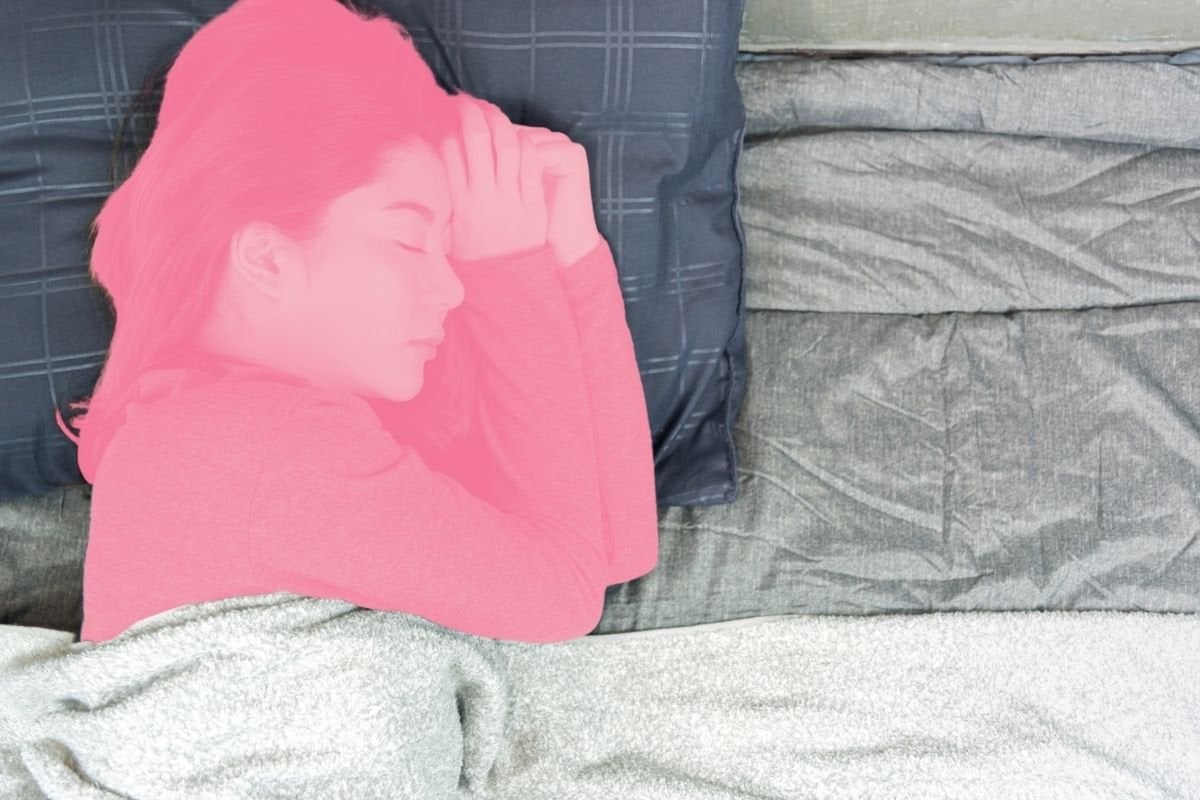
We do SO much stuff in the morning to make our skin look fresh, glowing and, like, alive. And if you're anything like us, your innocent bathroom cupboard is cluttered with mounds of beauty products - brightening serums, under eye treatments, dewy foundation and the like.
We slap it all on in the space of five minutes and walk out the door, hoping we look all healthy and glowy and like we actually drink enough water (HA!).
Watch: Not bothered reading this whole darn thing? That's okay. It only hurts a little. Here's a video on how to improve your skin while sleeping, instead. Post continues below.
But what if science told you that just having a solid snooze could help improve your skin?
Well, it turns out science did tell you this...like, a bunch of times. But you might've had your earphones in or something. Cause there's quite a bit of research and science behind the concept of beauty sleep. It's a very real thing that you probably thought was a very fake thing. Awks!
There's actually a LOT of stuff happening to your skin while you sleep. This is when your body tries to repair and regenerate itself, and reverse all the radical damage it has to put up with during the day from, you know, the world.


